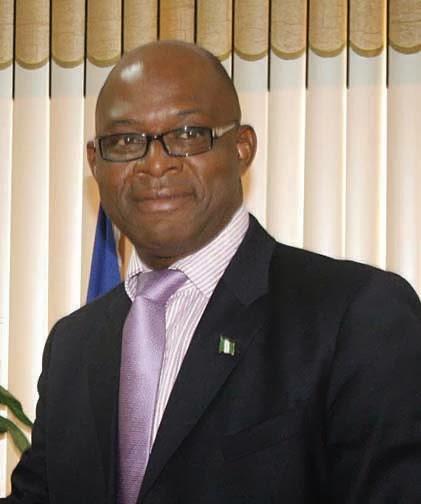A Federal High Court in Lagos has dismissed the no-case application filed by a former Director-General of the Nigerian Maritime Administration and Safety Agency, Mr. Raymond Omatseye, charged with N1.5bn contract fraud.
Justice Rita Ofili-Ajumogobia dismissed Omatseye’s application yesterday on the grounds that it was lacking in merit.
The judge held that the charges against Omatseye were properly drafted according to the law and that it had become necessary for him to canvass argument in defence of himself.
She therefore slated February 18, 2015 for him to proceed into the dock to absolve himself of the allegations.
Omatseye had been charged with an amended 27-count bordering on contract scam and money laundering by the Economic and Financial Crimes Commission.
The EFCC had alleged that while in office as the NIMASA DG, Omatseye engaged in contract splitting and bid rigging estimated at over N1.5bn.
The offence, according to the anti-graft agency, contravened Section 58(4) (d) of the Public Procurement Act, 2007.
The accused was also said to have violated Sections 14(a) of the Money Laundering (Prohibition) Act, 2004.
But upon his re-arraignment before Ofili-Ajumogobia on January 21, 2013, Omatseye had pleaded not guilty to the alleged crime.
The court consequently called upon the prosecution, represented by Chief Godwin Obla (SAN), to substantiate its allegations.
At the end of its submissions, however, Omatseye, through his lawyer, Mr. Olusina Sofola (SAN), submitted a no-case application, wherein he urged the court to quash the charges for want of competence.
Sofola, while adopting the no-case application, had argued that since the charge against his client bordered on award of contract in sums above N4m, contrary to the Public Procurement Act, 2007, it was incumbent on the prosecution to state what the valid monetary threshold was at the time that Omatseye allegedly awarded the said contracts.
He submitted, “The definition of monetary threshold states that it is the value limit in Naira set by the bureau, outside of which an approving authority may not award a procurement contract.
“Even though the accused had admitted that his threshold was N5m for works and N2.5m for goods, the prosecution is duty-bound to establish what the valid threshold was as of the time the contract was awarded.
“Since the counts in the charge refer to monetary threshold and not only threshold, then, the court must look at the definition of monetary threshold and not threshold.
“We also invite the court to look again at section 16 (2) of the Public Procurement Act, which provides that the council shall consider, approve and amend the monetary threshold for the application of the provisions of this act, by procuring entities.”
Sofola maintained that the prosecution had failed to adduce sufficient evidence in support of its case to warrant Omatseye to enter the dock in defence of himself.
He therefore urged the court to dismiss the charges in totality.
But in response, Obla had submitted that, “Assuming but not conceding that there is an error in the counts as contended, we submit that the alleged error if any, cannot render the counts invalid having regards to sections 166 of the Criminal Procedure Law.”
Ruling on the application yesterday, Ofili-Ajumogobia said she did not find any difficulty in agreeing with the prosecution that the counts in question, were properly drafted in accordance with the provision of the Public Procurement Act.
She held, “It is an abject misconception for the applicant to contend that the offence is committed when the award is actually made; this would go against the spirit and letters of the criminalising section.
“On the whole, I find this application to be lacking in merit; the applicant has failed woefully in his attempt to discredit the evidence adduced by prosecution in this case.
“At this stage of a trial, all that the court is required to do, is to satisfy itself that there is some tenable quantum of evidence before it links the accused to the offence.
“Having stated this much, the proper order which I think this court should make in the circumstance, is to dismiss this application in its entirety, and I so do.
“The applicant is therefore, called upon to enter his defence. This is my ruling as read out in open court,” Ofili-Ajumogobia held.
Copyright Ships & Ports Ltd. Permission to use quotations from this article is granted subject to appropriate credit given to www.shipsandports.com.ng as the source.

